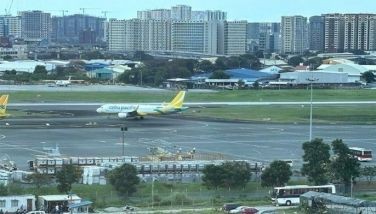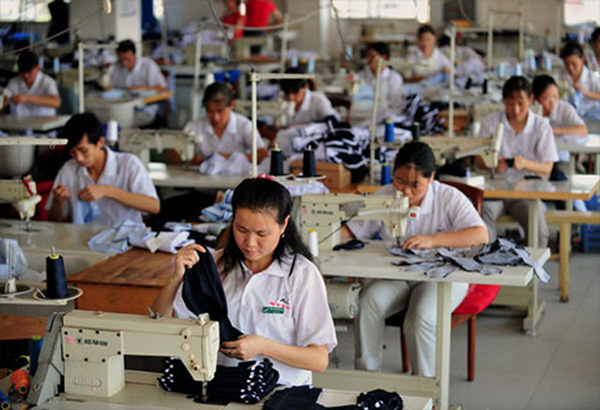The presidential candidates and the economic issues

With the presidential campaign having started in earnest, the economic issues the candidates vow to pursue should indicate with clarity their action program.
In less than three months, the people go to the polls to vote for their choice of the next national leader.
The economic platforms of the candidates should differ in detail, length and coverage. But in general, the campaign platforms on economic issues are strikingly similar. They want roughly the same things.
The candidates. At this time, there are five candidates competing for the presidency. One major candidate – Grace Poe – faces a cloud of doubt: potential disqualification on the basis of the natural-born citizenship issue.
Given that election time is near and she is already on the election ballot being printed, the decision of the Supreme Court (which is likely to be announced soon) will definitely influence for good or ill the vote for the presidency.
Disqualification rearranges the votes among the four major candidates – Mar Roxas, Jejomar Binay, Rodrigo Duterte, and Miriam Defensor.
Non-disqualification firms up already expressed voters’ preferences among the five candidates, with Poe apparently competing strongly.
In this contest, as always in the past, voter perception of the personalities involved – not so much the issues they represent which are hardly any more different in the large – will determine how they react to the candidates.
Philippine presidential elections are notoriously personality driven. Political parties are important in that they provide the wherewithal for the ground game to get the voters to vote on election day. This involves mobilization of logistics to bring the voters to the precincts, the protection of the vote through the election watchers, and the mobilization of campaign finance.
In a personality-driven contest, strong and popular candidates attract campaign contributions. Winnability is a magnet for more funding support. The cost of campaigning is large and candidates can afford only a very tiny fraction of the financial burden of a candidacy.
Therein also lies the problem of the election system in the country. It is hard to know how campaign contributors undermine the public welfare, but they significantly do. They influence the leader in the conduct of the presidency.
A weak leader, or one who had traded support for large concessions on issues, could be prevented from undertaking reforms the country truly needs. The winning candidate might yield to pressure when large, dominant contributors make their demands for spoils of victory.
Mar Roxas, the administration candidate, has been unable to take the lead in the periodic pre-election voter surveys. Although his candidacy has received rising support, that seems not to be enough to catapult him to the top. He inherits the mantle of continuity for a fairly popular political administration.
Yet Roxas’s reticence in speaking his mind on issues has projected an inability to distinguish himself from the face of the administration. The result is that he inherits also the undistinguished failures (many of them in the infrastructure bottlenecks of the country) of an otherwise successful administration.
Grace Poe, a first term senator, has succeeded in positioning herself as an option to the Daang Matuwid program of the administration. Should the Supreme Court rule in her favor, she would likely divide the political support for the administration and swamp the Roxas candidacy.
Jejomar Binay, the sitting vice president, is quite popular and has personal roots that connect him to the masses. However, allegations of corruption in his long tenure as mayor of Makati, has weakened his once insurmountable advantage. Nonetheless, he continues to enjoy a nationwide following that has been unshaken by the charges made against him.
Rodrigo Duterte, the mayor of Davao, is the dark horse in this election with a minimalist program. His strong stand on public safety, drugs and against criminality and his reputation as a man of action has captivated part of the electorate. His main strength is in Mindanao and parts of the Visayas, but he is very popular in Metro Manila. But his loose, fearsome, and irreverent talk is alarming supporters.
Miriam Defensor, a long time senator, is essentially a candidate in the past. She lost a close electoral contest against presidential victor, Fidel V. Ramos. In the current election, she attracts only a small percentage of voters. She could, however, spoil the chances of others of major candidates in a tight presidential race.
In terms of party organization, only Roxas and Binay are backed up by a strong network of party supporters. In a competitive race, the work of those on the ground level could be significant in the overall scheme of things.
In the post-People Power politics of the country, however, political parties have splintered. They are a shadow of the two dominant parties of yesteryears, the Nacionalista and the Liberal parties
The economic issues. There are many economic issues across sectors of the economy and various industries. The main economic problems facing the next leader can be compressed into a few that focus on the satisfaction of the aspirations of most Filipinos.
All these are found in varying degrees in the statement of economic goals of the candidates. Foremost among these is the generation of more jobs, especially good employment opportunities for the population. This means jobs that are sustained and which, in general, provide sufficient income for the worker.
The goal of jobs generation unifies most of the economic platforms. Jobs, however, can only be produced by investments. In general, the more investments, the more jobs could be created, the more poverty is conquered. Thus, substantial investments are made in industry, agriculture and in infrastructure facilities that are essential in supporting the capacity to produce goods.
More jobs can be achieved only if the economy grows at a good and respectable rate. The extent of job generation depends on how labor-intensive are the investments being made and on the volume of investments that are established in new enterprises and expansion of existing industries.
The expansion of the ASEAN free trade area brings in more competition with our regional neighbors. Moreover, the enlargement of free trade zones involving the high income nations beckons the country to move more boldly.
In the myopic view of the candidates trying to impress an electorate that only wants subsidies, lower taxes and improved business environment, these dimensions and their wide implications on deeper economic reforms could be neglected.
Only Binay has stressed the importance of amending the restrictive provisions of the Philippine constitution in order to open the economy to more foreign investments like in other countries. The other candidates should elaborate and not hide.
My email is: [email protected]. Visit this site for more information, feedback and commentary: http://econ.upd.edu.ph/gpsicat/
- Latest
- Trending































